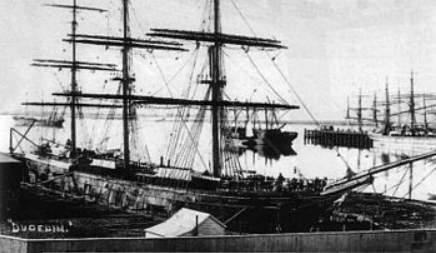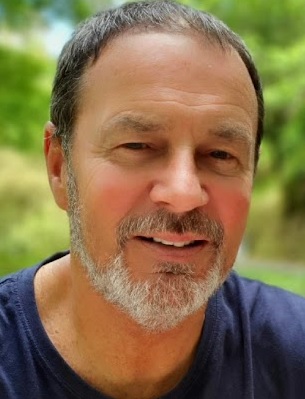
Our sense of community and interdependent connectivity was once almost unshakable. Nowadays, perhaps in the face of overwhelming globalisation, rampant inequality and relentless information (and misinformation), we seem less certain.
In fact, we are seeing a worldwide trend towards protectionism, isolationism and populist nationalism. Some of this regression is also tied up with ideas of cultural, religious or racial superiority where outsiders are openly maligned and shunned.
In all this the revolution happening in media and technology is playing its part. Consider just one telling aspect?
In rural New Zealand, up until at least the 1880s, communities were relatively isolated from each other. The only connections were horse and walking tracks, or boats. Then a technical revolution occurred that would provide New Zealand with it’s first major economic and social boost. Refrigerated shipping started with the sailing of the Dunedin from Port Chalmers in 1882.
The revolution refrigerated shipping provided was not merely from the ability to export perishable products, it was also the profound impact it had on breaking down community isolation and replacing it with interdependent connectivity. Previously farms producing perishable items could only sell locally, so dirt tracks and horseback provided sufficient transport. From 1882, it became obvious that a community response was needed to fund and build ports, roads and railway lines so that all producers could participate and contribute to the nation’s burgeoning wealth.
Naturally enough infrastructure that assisted farms and businesses to create wealth, also played a role in developing our social and community cohesion. Things such as health, education and social mobility vastly improved and New Zealand has hardly looked back.
These days it’s often said that the infrastructure tool of the current age is digital and the internet. But while it remains largely open to anyone, the internet’s development has not enjoyed the same collective community focus as say our roads, bridges and railway lines. Instead the public space is largely dictated by corporates with a profit-only motive, and enhanced connectivity is developed by individual groups and businesses that can afford to go-it-alone. They have created their own digital systems and protocols, where enhanced connectivity operates in a silo for the benefit only of the owner and their direct stakeholders.
In the meantime, digital infrastructure for ordinary citizens is lagging far behind and doesn’t deliver much that contributes to our sense of community, whether it’s global or in our neighbourhoods. So instead of people being better informed, knowledgeable, open and tolerant, we are seeing evidence of the reverse.
Where’s the solution?
Tim Berners-Lee, the man credited with inventing the internet, once said, “The original idea of the web was that it should be a collaborative space where you can communicate through sharing information.”
Some would say that Google and social media have already delivered this, but the evidence is mounting to suggest this is only partially true.
So, is it a failure of the internet to deliver on Tim Berners-Lee’s promise or have we failed as a community to recognise its true purpose and potential to wring the kinds of revolutionary changes that occurred in the 1880s?
I think the latter. In my own web development business, we are seeking to do our bit by challenging the status quo of the internet by offering enhanced connectivity and collaborative ability to everyone in a community. At the same time, we are working with community organisations on a mission to offer people access to more reliable and valuable citizen generated content through ecosystems of interconnected websites, that form their own clusters and communities of mutual interest.
Naturally enough, we welcome interest and feedback from anyone interested in building better communities.
 You can contact Fraser here.
You can contact Fraser here.
Fraser Carson is the founding partner of Wellington-based Flightdec.com. Flightdec’s kaupapa is to challenge the status quo of the internet to give access to more reliable and valuable citizen generated content, and to improve connectivity and collaboration.
Flightdec websites include: KnowThis.nz, Issues.co.nz and Inhub.org.nz.
OTHER POSTS
LATEST POSTS
- Who was our first knight?
- Carl Lutz – farmer who loved the land, and Fordsons
- Arthur saw nature ‘with eyes of admiration’
- Ōtaki abuzz with film festival - Ōtaki Today
- Hall helps to connect and build community
- Fear breeding fear, fear and more fear
- Plenty of help organisations in times of need
- Poor official communications fuel misinformation
- Cultural infrastructure could be our saviour
- Four-storey blocks coming as developments fast-tracked
- The world’s therapist offers little hope for global ills
- Modern conservatism the quiet killer
- Di’s QSM for services to community and environment
- However bad it might get, keep smiling
- AI is coming, ready or not
- Rewi’s story one of adversity in old Ōtaki
- Arise King Brown of the Kingdom of Auckland
- Rebuilding should draw on mātauranga
- Urban designer poses critical question - What’s the plan for Ōtaki?
- Brown hits the fan as water levels rise
